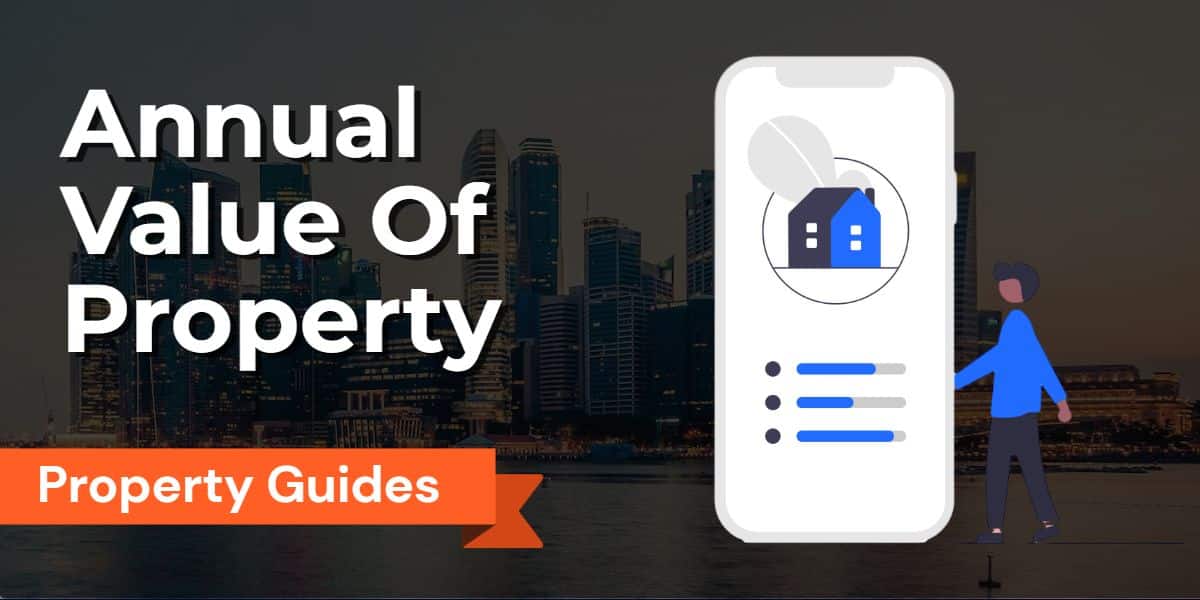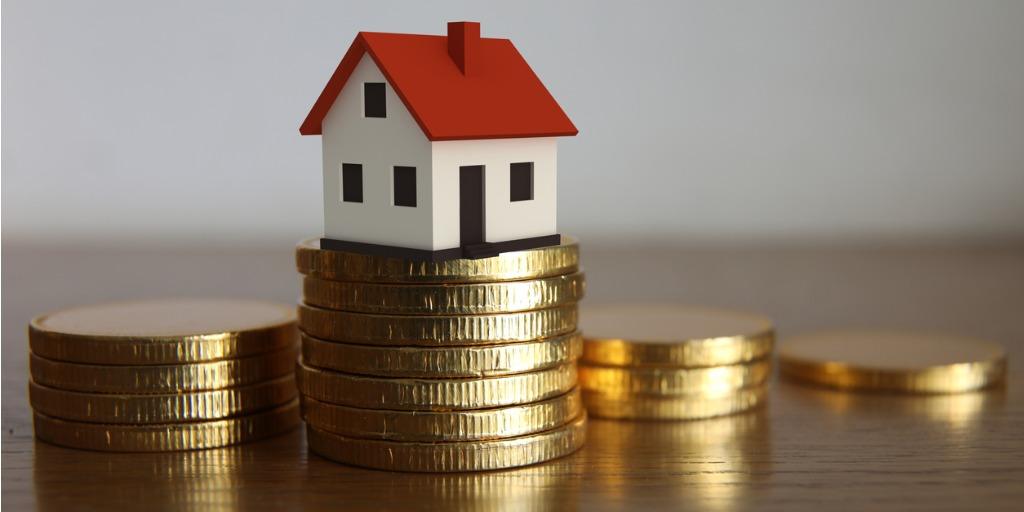
Valuation of Property Singapore determines a property’s value in the real estate market.
It helps buyers and sellers establish a fair price, affects property taxes and loans, and guides investment decisions.
Location, size, condition, and economic indicators influence property value.
Professional valuers play a vital role in providing accurate valuations and advice.
Understanding valuation methods, market trends, and the part of licensed agents is essential for successful property transactions.
Key Takeaways
| Key Takeaways | Article Section |
|---|---|
| Property valuation determines the value of a property by considering factors like location, condition, and market trends. | What is Property Valuation? |
| Accurate property valuation helps determine a fair price, attract buyers, and is necessary for property taxes and mortgage loans. | Why is Property Valuation Important in the Singapore Market? |
| Accurate valuation reports benefit buyers and sellers by guiding investments, avoiding under/overpricing, and facilitating fair negotiations. | What are the Benefits of Accurate Property Valuation? |
| Factors affecting property value include location, size, condition, architecture, and economic factors. | Factors Affecting Property Value in Singapore’s Real Estate Market |
| Professional valuers are trained individuals responsible for determining property value using proper methods and standards. | The Role of a Professional Valuer in Accurate Property Valuation |
| Property valuation calculators provide estimated property values but have limitations and may not account for all factors. | Using Calculators for Indicative Property Valuations in Singapore |
| Accurate valuation reports serve as a starting point for negotiations, prevent misunderstandings, and benefit both buyers and sellers. | The Significance of Accurate Valuation Reports in Property Transactions |
| Indicative valuation estimates property value based on similar properties, while x-value method provides accurate estimates using data analytics. | Exploring Different Valuation Methods for Residential and Commercial Properties |
| Market trends, supply and demand, and economic indicators impact property values in Singapore. | The Impact of Market Trends on Property Values in Singapore |
| Accurate property valuation is crucial for mortgage and loan applications, determining loan value, and timely repayment. | The Role of Property Valuation in Mortgage and Loan Applications |
| Licensed real estate agents provide property valuation assistance, pricing recommendations, and market expertise. | How Real Estate Agents Assist in Property Valuation and Pricing |
| Hiring licensed real estate agents ensures accurate pricing, maximizes property value, and reduces risks for buyers and sellers. | Why It’s Crucial to Hire a Licensed Real Estate Agent for Property Valuation |
| Property valuation process involves evaluating property condition, size, location, type, and potential rental price. | The Process of Conducting a Property Valuation with an Agent |
| Estimation and appraisal are integral to property valuation, enhancing accuracy and determining single property value. | Understanding the Importance of Estimation and Appraisal in Property Valuation |
| Method of valuation, adjustments for variances, and consideration of floor levels influence accurate property valuation. | Crucial Factors to Consider in Accurate Property Valuation in Singapore |
| Licensed property valuers provide professional advice to buyers and sellers, ensuring informed decisions and unbiased assessments. | The Role of Property Valuers in Providing Professional Advice to Buyers and Sellers |
| Property condition plays a significant role in determining its value and assessment, including its development potential. | The Influence of Property Condition on its Value and Assessment |
Understanding Property Valuation and Its Importance in the Singapore Market
What is Property Valuation?
Property valuation refers to the process of determining the value of a property in the real estate market.
This is done by considering a variety of factors, such as the location of the property, the condition of the property, economic factors, and market trends.
Why is Property Valuation Important in the Singapore Market?
Property valuation is essential to the Singapore property market as it helps buyers and sellers determine a fair property price.
An accurate property valuation can positively affect its sale price, while an overvalued property may not attract potential buyers.
Additionally, property valuation is necessary for property taxes and mortgage loans.
What are the Benefits of Accurate Property Valuation?
Accurate property valuation provides numerous benefits for both buyers and sellers.
For buyers, an accurate valuation report can serve as a guide to identifying suitable properties to invest in.
Obtaining an accurate valuation report is crucial for sellers to avoid underpricing or overpricing their property.
Real property valuation reports can also be a realistic starting point for negotiations between buyers and sellers, ensuring a fair transaction for both parties.
Factors Affecting Property Value in Singapore’s Real Estate Market

Location
Location is one of the most critical factors affecting property value in Singapore.
Properties located near amenities such as schools, shopping malls, and transport hubs have a higher value than those without.
Properties in prime districts such as Orchard and Sentosa also tend to have a higher value than those in less developed areas.
Size and Condition of the Property
The size and condition of the property are other determining factors of its value.
More significant properties tend to have a higher value than smaller ones, while well-maintained properties are more likely to have a higher value than those in poor condition.
The age of the property, its architecture, and the layout are factors that come into play when determining its value.
Economic Factors
Economic factors such as interest rates, inflation, and government policies can also affect property value in the Singaporean market.
For example, rising interest rates may reduce property demand, while government policies such as cooling measures may lower property prices.
The Role of a Professional Valuer in Accurate Property Valuation
Who is a Professional Valuer?
A professional valuer is an individual who is trained to determine the value of a property.
They are usually certified by professional bodies such as the Institute of Valuers and Appraisers of Singapore (IVAS) and possess extensive knowledge of the factors that affect property value in the Singapore market.
What are the Responsibilities of a Professional Valuer?
The responsibilities of a professional valuer include the following:
- Conducting inspections of the property.
- Providing accurate valuation reports.
- Ensuring that the valuation process follows the standards set by professional bodies.
They must also use suitable methods to determine the property’s market value and consider any factors affecting its value.
What are the Qualifications Required for Professional Valuers in Singapore?
Professional valuers in Singapore must have a degree or diploma in valuation and possess the necessary skills and knowledge in property valuation.
They must also be registered with the Council for Estate Agencies (CEA) and the Appraisal Foundation.
Using Calculators for Indicative Property Valuations in Singapore

What are Indicative Property Valuations?
Indicative property valuations refer to the estimated value of a property based on certain factors.
While they are less accurate than a professional valuation report, they can serve as a starting point for buyers and sellers curious about their property’s value.
How do Property Valuation Calculators Work?
Property valuation calculators use a variety of factors, such as location, property type, and size, to calculate the estimated value of a property.
Some websites, such as SRX, provide real-time property valuations based on data from the Inland Revenue Authority of Singapore (IRAS) and other sources.
What are the Limitations of Using Property Valuation Calculators?
Property valuation calculators are not a substitute for a professional valuation report as they may not consider factors such as the cond property’s condition, property, the age of the property, and other economic factors that may affect the property value.
Additionally, they may need to be more accurate for specific properties, such as HDB flats, commercial properties, and condominiums.
The Significance of Accurate Valuation Reports in Property Transactions
What is a Valuation Report?
A valuation report is a formal document that contains the estimated value of a property as determined by a professional valuer.
It provides detailed information on the factors that affect the value of the property and the methods used to determine its value.
Why is Accurate Valuation Reports Important in Property Transactions?
Accurate valuation reports are important in property transactions as they provide a realistic starting point for negotiations between buyers and sellers.
They ensure that both parties are aware of the property’s fair market value and prevent any misunderstandings that could delay or cancel the transaction.
What are the Benefits of Obtaining a Valuation Report for Property Transactions?
Obtaining a valuation report for property transactions provides numerous benefits for both buyers and sellers.
For buyers, it ensures that they are not overpaying for the property.
For sellers, it ensures that they are not underpricing their property and potentially losing out on revenue.
Additionally, accurate valuation reports can positively affect buyers’ and sellers’ return on investment.
Exploring Different Valuation Methods for Residential and Commercial Properties

When it comes to valuing residential and commercial properties in Singapore, several factors come into play.
The most common methods of property valuation are indicative valuation and x-value.
Understanding The Indicative Valuation Method and Its Limitations
The indicative valuation is a property value estimate based on the valuation of similar properties located in the same area.
This method uses data on recent transactions of similar properties, such as unit type, size, age, and condition.
Several factors influence the indicative valuation of a property.
However, the method’s limitations include the fact that it is only an estimate and can lack precision if the data user needs to be updated or include the property’s unique features.
Hence, it is wise to use the indicative valuation method and other methods to validate a property’s worth accurately.
How to Calculate Property Value Using the X-Value Method
The x-value method is a more reliable property valuation method that determines the property’s value based on its Specific Market Segment (SMS).
SMS refers to properties that are similar in terms of location, size, unit type, and condition and also fulfill the same objective, like residential or commercial.
X-Value uses data analytics to determine the current value of the property.
With X-Value, the property owner can quickly get an accurate estimate of the property value.
The X-Value is obtained primarily by calculating the net income the property can bring in from lease rental or sale, discounted with one of the risk-free rates for Singaporean Government Securities.
The x-value method is a unique valuation method for any property investor or homebuyer.
The Impact of Market Trends on Property Values in Singapore
Real estate developers, agents, and investors are concerned about the current market trends because it affects their buying, selling, and investment decisions.
When considering the resale or purchase of a house in Singapore, it is essential to understand market dynamics that affect property market prices.
The increase or decrease in demand for a property type can affect the asset’s cost.
Understanding market trends is vital if you want to buy or sell property in Singapore.
Understanding the Relationship Between Supply and Demand in Property Valuation
The supply and demand of properties for sale significantly influence market trends in Singapore.
The government controls the supply of the units per estate for the preservation of a good quality leasehold.
In the case of HDB resale flats, the limited number of flats on sale will result in increased competition among interested buyers, leading to higher resale prices and value.
In contrast, an increase in supply tends to push prices and value down.
The requirement for purchase also influences the supply-demand balance, and this can lead to changes in market trends.
Thus, up-to-date knowledge of market trends is significant.
How Economic Indicators Affect Property Prices in Singapore
Economic indicators are statistics used to track the overall performance of Singapore’s economy.
These indicators can affect property prices, hence the need for real estate agents and buyers to understand economic trends.
Financial indicators can influence property values and prices in several ways, such as mortgage interest rates, unemployment rate, Gross Domestic Product (GDP), and inflation rate.
A decrease in interest rates will reduce the fixed rate of mortgage repayments, resulting in increased buying power, thus increasing the demand for properties.
On the other hand, high-interest rates can lead to fewer mortgages taken, leading to decreased demand and property value.
The Role of Property Valuation in Mortgage and Loan Applications

The accuracy of property valuation is vital for loan applications, mortgage approval, and repayment.
Lenders need to understand the property’s value and ensure that the property value is sufficient to secure the loan principle.
Property valuation is crucial in satisfying the loan-to-value ratio requirements, which impose tighter restrictions in Singapore’s real estate sector.
Furthermore, accurately valuing a property ensures that the homeowner pays only what the property is worth and that the mortgage drawn is appropriate to ensure they don’t experience any missed repayments.
How Lenders Determine Property Value for Mortgage Approval
Lenders in Singapore consider various factors when determining the value of a property.
The amount of the loan granted is often dependent on this valuation.
Lenders consider the property’s condition, age, location, type, nearby property sales, trends in the property market, restrictive covenant, and overhang.
Lenders also consider that every commercial property and condo value varies based on other factors like maintenance fees, shared facilities, and facilities accessible nearby.
The Importance of Accurate Valuation in Loan Application and Repayment
The accuracy of property valuation extends beyond granting mortgage loans.
Accurate valuation ensures timely repayment of a loan, as homeowners do not have to borrow unnecessarily.
Having a clear understanding of the property’s worth prevents undervaluation, which can lead to the bank charging a higher interest rate.
Similarly, overvaluing the property can lead to higher loan repayment amounts and collateral.
Hence undervaluing or overvaluing a property can harm the homeowner and the bank.
How Real Estate Agents Assist in Property Valuation and Pricing
The involvement of real estate agents significantly impacts the real estate market in Singapore.
Licensed agents possess the legal authority to provide property value recommendations to sellers, landlords, or buyers.
With their market knowledge and technical expertise, they can estimate a property’s value per the market price.
Additionally, it is crucial to hire a licensed real estate agent in Singapore because they can assist in maintaining a property’s aesthetic during valuation, considering its potential maintenance costs and the nearby facilities accessible.
Why It’s Crucial to Hire a Licensed Real Estate Agent for Property Valuation
The knowledge and experience that licensed agents possess in the property valuation process are significant.
Licensed real estate agents ensure each property is priced correctly, ensuring it is neither undervalued nor overvalued.
Overvalued properties remain on the market for an extended period, reducing the price below the market value, while undervalued properties lose money due to low pricing.
Using a licensed agent guarantees that your property is priced accurately, achieving the highest price in the current market while decreasing the risk of losing money.
The Process of Conducting a Property Valuation with an Agent
The property valuation process involves several steps that depend on the property’s type.
An accurate property valuation requires the agent to evaluate a property and determine its condition, size, location, whether residential or commercial, the potential rental price, and the surrounding provided facilities.
During the valuation process, agents determine if it is a freehold or a leasehold—the latter most occurring in Singapore’s real estate sector.
The property’s lease remaining is shown as an essential factor in its valuation.
Thus, enlisting a licensed real estate agent from Sector PRISTINE GARDENS PTE LTD to guide you through the valuation process is crucial.
Understanding the Importance of Estimation and Appraisal in Property Valuation

Estimation and Appraisal are two critical parts of property valuation in Singapore.
Both processes are integral to the property valuation process but serve different purposes.
Differences Between Property Appraisal and Valuation
Property appraisal and valuation are two different terminologies used in property valuation.
Valuation refers to assessing a property’s worth in the market through various methods, while Appraisal is the process of assessing a single property’s value.
Valuation is more comprehensive and requires the combination of several methods to achieve accurate pricing.
An appraisal is necessary to determine the property value when it is resold.
Hence, different appraisal types should be used in line with the asset’s usage, whether residential, commercial, or industrial.
How Estimation Affects the Accuracy of Property Valuation
Estimation is an essential process used in combination with other property valuation methods.
It involves evaluating the property’s potential worth using the current market conditions and other sale trends.
Estimation enhances the accuracy of property valuation in circumstances where historical data is insufficient for valuation purposes.
When estimating a property, it is recommended to involve expert appraisers in the process to ensure the estimate’s accuracy.
Crucial Factors to Consider in Accurate Property Valuation in Singapore
Method of Valuation
The method of valuation is a crucial factor that property valuers consider.
In Singapore, the most common methods used are the market value, income, and cost approaches.
The market value approach involves comparing the subject property with similar properties in the same locality and arriving at an estimated value.
On the other hand, the income approach focuses on the rental income a property can generate over time.
The cost approach estimates the cost of building or replacing a similar property and then deducts depreciation costs to arrive at an estimated value.
Adjustments for Variances
Property valuation in Singapore is not a one-size-fits-all process, as every property is unique.
Valuers use adjustments to account for variances such as the property’s age, location, and size.
Special features, such as the presence of a swimming pool or a tennis court, can also influence the value of a property.
Floor Levels and Adjustments
Floor levels also affect property value in Singapore.
Generally, the higher the floor, the better the view, and the higher the property value.
Some properties may require additional adjustments, such as lifts to reach higher feet, affecting the property’s price.
The Role of Property Valuers in Providing Professional Advice to Buyers and Sellers

Licensed Valuers and Panel Valuers
A licensed valuer is a professional with the necessary knowledge and experience in conducting property valuations.
Banks and financial institutions approve panel valuers and act valuations on their behalf.
Both values play an essential role in the property market by providing professional advice to buyers and sellers.
Professional Advice on Property Purchase
Buying a property is a significant investment that requires careful consideration.
Property valuers provide professional advice on the best properties to invest in depending on individual needs.
With their experience and knowledge of the property market, valuers can offer valuable insights to assist buyers in making informed decisions.
Unbiased Assessments for Buyers and Sellers
Property valuers provide unbiased assessments to buyers and sellers about the fair market value of a property.
By conducting thorough evaluations, valuers ensure that the interests of both parties are protected in a property transaction.
The Influence of Property Condition on its Value and Assessment
Evaluating the Development Potential of the Subject Property
Development potential refers to developing a property beyond its current state to enhance market value.
Property valuers consider the possibility of a property adding value to the property valuation.
For instance, a property with the potential to add extra floors or new facilities can increase value.
The Impact of Industrial Property on Valuation
The industrial sector is a significant contributor to the Singaporean economy.
Industrial property, such as factories and warehouses, requires a different valuation approach than residential properties due to the nature of their use.
Industrial properties often generate rental income, which is a significant factor when determining property value.
The Impact of Income-Producing Property on Valuation
Income-producing properties such as hotels and commercial real estate assets generate income for their owners.
These properties’ rental income is a significant factor when determining their value.
Property valuers consider the income generated by the subject property when conducting valuations.
Exploring the Relationship Between Property Valuation and Taxes in Singapore

Stamp Duty and Property Taxes
Stamp duty and property taxes are significant costs that property buyers in Singapore incur.
Stamp duty is a tax imposed on property transactions, and its amount is based on the property’s purchase price.
Property tax, however, is a recurring charge levied on the property owner every year based on the property’s annual value.
The value of a property, as determined by property valuers, influences the taxes that buyers and sellers incur.
Formal Valuations for Tax Purposes
Formal valuations are necessary for taxation purposes.
Professional valuers provide formal valuations that are legally binding and are used to determine stamp duty and property tax.
The Role of Financial Institutions in Property Taxation
Financial institutions play a significant role in property taxation in Singapore as they rely on property valuations to determine the loan amount they can give to property buyers.
The loan amount given to buyers affects the stamp duty and property taxes they incur.
Real-Time Singapore Property Valuation Tools and Their Role in the Singapore Market
The Property Value Tool: Advantages and Limitations
Online tools such as the Property Value Tool provide instant property valuations based on recent sales of similar properties.
These tools help estimate a property’s value, but they have limitations.
Online tools rely on availably public data sources and cannot consider the unique attributes of the subject property.
The Importance of Keeping Up with Property Market News and Price Trends
Property market news and price trends provide valuable information on factors influencing property valuations in Singapore.
Such data can help buyers and sellers make informed decisions about their properties.
The Benefits of Using Professional Valuation Services
Professional valuations by established firms such as 3C Property Consultants Pte Ltd and CKS Property Consultants provide accurate and unbiased valuations that consider all aspects of a property.
These firms have the necessary experience and team of experts to offer comprehensive valuations that consider the current property market trends and conditions.
Experienced valuers can help property buyers, and sellers avoid costly mistakes from inaccurate valuations.
Conclusion
In conclusion, understanding property valuation is crucial in the Singapore market for both buyers and sellers.
Property valuation helps determine a fair price for a property, ensures accurate taxation and mortgage loan processes, and serves as a starting point for negotiations.
Location, size, condition, and economic indicators impact property values.
Professional valuers play a significant role in accurate valuations, while property valuation calculators provide indicative values.
Accurate valuation reports are essential for property transactions, mortgage applications, and loan repayment.
Real estate agents assist in property valuation and pricing, and hiring a licensed agent is crucial for accurate valuations.
Estimation and Appraisal are integral parts of property valuation, and factors like the valuation method and adjustments for variances must be considered.
Lastly, licensed valuers provide professional advice and unbiased assessments to buyers and sellers, ensuring fair transactions.
To explore more in-depth articles on property valuation and related topics, please check out our other blog articles.
Frequently Asked Questions
What is indicative valuation?
Indicative valuation refers to a property’s approximate value based on the property’s current market conditions and physical attributes.
How is indicative valuation different from market value?
Market value refers to the price at which a property could be sold in the open market.
Indicative valuation, on the other hand, is just an estimate.
What is a property valuation?
Property valuation is a process of determining the value of a property for various purposes such as sale, mortgage, insurance, or taxation.
It is usually carried out by a professional valuer who considers multiple factors such as location, size, and market conditions.
Can I use our free valuation tools to get an estimate of my property's value?
You can use our free valuation tools to estimate your property’s value.
However, these tools should be used as a guide only and not as a substitute for an actual valuation by a professional valuer.
What factors affect the valuation of a property in Singapore?
Some factors that affect the valuation of a property in Singapore include location, size, condition, surrounding amenities, market conditions, and recent sales prices of similar properties in the area.
Who can provide a property valuation report in Singapore?
A property valuation report in Singapore can only be provided by a licensed valuer with a valid practicing certificate issued by the Council for Estate Agencies (CEA).
How long does a property valuation take?
The time taken for a property valuation in Singapore depends on various factors such as the property’s size, the valuation’s complexity, and the availability of information.
Generally, it takes around one to two weeks to complete a property valuation report.
Do I need to appoint a valuer for property valuation, or can I do it myself?
It is advisable to appoint a licensed valuer for property valuation in Singapore.
While you can use free valuation tools to get an estimate of your property’s value, a professional valuer has the expertise and knowledge to carry out a more accurate valuation considering all the relevant factors.
How much does a valuation of property singapore cost?
The cost of a property valuation in Singapore depends on various factors, such as the size of the property, the complexity of the valuation, and the valuer’s experience and expertise.
Generally, it can range from a few hundred to several thousand dollars.




















